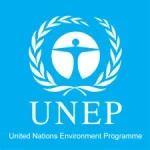
Work Locationhome-based
Expected duration3 months
Duties andResponsibilities
Background and Organizational Setting The United Nations Environment Programme (UNEP) is the United Nations system’s designated entity for addressing environmental issues at the global and regional level. UNEP is the custodian for 25 SDG indicators which cover topics related to water, ocean, land, natural resources, protected areas, and environmental policy. UNEP’s Environment Early Warning and Assessment Division is the lead division for the Environment Under Review Sub-programme (SP-7) that aims at empowering stakeholders in their decision making with quality data and assessments made available on open platforms. Through this, the Environment Early Warning and Assessment Division works to provide timely, scientifically credible, policy-relevant environmental assessments, data and information for decision-making and action planning for sustainable development. It also spearheads UN-wide monitoring and reporting on the environmental dimension of the 2030 Agenda and SDGs. This consultancy is in the SDGs and Environment Statistics Unit, of the Capacity Development and Innovation Branch of the Environment Early Warning and Assessment Division. The SDGs and Environment Statistics Unit acts as the coordinator for work related to the SDG indicators and official environment statistic within UNEP. The 2030 Agenda for Sustainable Development has elevated the profile of the environmental dimension of development and how to monitor this dimension. UNEP began to implement the European Commission funded project on Enhancing Capacity for Measuring Progress towards the Environmental Dimension of the Sustainable Development Goals (SDGs). The project aims to ensure the uptake of adopted SDG methodologies for indicators where UNEP is custodian. It also aims at strengthening national capacity for designing coherent and integrated policies for sustainable development, monitoring, and reporting on the environmental dimension of the SDGs through (1) enhancing capacity on environment statistics through training programmes, (2) ensuring dissemination and uptake of the global methodologies through targeted capacity development for key SDG indicators at the national level and (3) deepening UNEP’s analysis of trends at the global and regional levels, including interlinkages between the various goals, targets, and indicators. Essential data management policies, practices, integration, and analytical capacities are currently limited in many countries and are a significant challenge in mapping the SDGs with national monitoring frameworks. The project focuses on Sustainable Consumption and Production (SDG 12) as it plays an essential role in the shift towards a circular economy, and policy coherence (SDG 17) indicators where regional and national activities are planned in Africa and Asia. Knowledge-sharing and targeted capacity development on data and indicators for SCP and waste (SDG 12) and policy coherence (SDG 17) indicators will equip the project targeted countries with the technical knowledge to further strengthen their statistical capacity towards achieving sustainable development. Currently, most of the SDG indicators 12.2.1 on material footprint, 12.2.2 on domestic material consumption, 12.4.2 on hazardous waste generated and treated, 12.5.1 on national recycling rate and 17.14.1 on policy coherence lack or have limited data. The project’s goal is to build the statistical capacities of targeted countries to better understand the adopted methodologies and develop national statistics related to the previously mentioned indicators. 1.1 Explain the requirement for a consultant/individual The aim of the consultancy is to enhance relevant technical and statistical skills of government officials in targeted countries (Ghana, India, Jordan, Kazakhstan, Senegal and Uganda) to identify relevant data and report on SDG indicators 12.2.1; 12.2.2; 12.4.2 and 12.5.1 at a national level. The consultant shall equip government officials with the know-how and technical skills to regularly report on the selected SDG indicators through the development of technical presentations and working sheets. Specific tasks and responsibilities Under the direct supervision of Ms. Ludgarde Coppens, the Head of the SDGs and Environment Statistics Unit (UNEP/ Early Warning and Assessment Division), the consultant has the responsibility to conduct the following activities: a) Prior to country mission, the consultant has the responsibility to: a.1 Prepare an inception report outlining a comprehensive desk review of the national context for SDG indicators 12.2.1; 12.2.2; 12.4.2 and 12.5.1, including data availability and requirements, list and contacts of key stakeholders to engage with; a.2 Develop a step-by-step document and calculation/working sheets for each SDG indicator, including necessary information on the source of data, responsible entity and embedded formulae to calculate the indicators a.3 Develop appropriate technical material to be presented in countries, in English, in collaboration with UNEP, by using existing technical resource materials. b) In-country mission, the consultant has the responsibility to: b.1 Convene relevant stakeholders and conduct a hands-on training using the prepared technical material in collaboration with UNEP and relevant national entities; b.2 Guide government officials in identifying appropriate data and calculating relevant indicators. c) Upon completion of the country mission, the consultant has the responsibility to: c.1 Prepare mission report, in English, with the following criteria, among others: • Inception report and assessment of the situation • Activities undertaken in each country, including presentations, list of government officials and entities engaged with • Obtained results • Lessons learnt and best practices. • Annexes: all prepared material relevant to the mission.
Qualifications/special skillsA Master’s degree in Environmental Science is a required. A doctoral degree is desirable. • At least 5 years of progressively responsible training experience on environmental and sustainable development issues is required. Experience in the UN system and in a government/intergovernmental setting is desirable. • Proven expertise and experience in working with countries to enhance their technical and statistical capacities. • Proven expertise and experience in working on sustainable consumption and production for sustainable development.
Languages• English and French are the two working languages of the United Nations Secretariat. For this post, fluency in English (both oral and written) is required. Fluency in Arabic, French or Russian is desirable.
No FeeTHE UNITED NATIONS DOES NOT CHARGE A FEE AT ANY STAGE OF THE RECRUITMENT PROCESS (APPLICATION, INTERVIEW MEETING, PROCESSING, OR TRAINING). THE UNITED NATIONS DOES NOT CONCERN ITSELF WITH INFORMATION ON APPLICANTS’ BANK ACCOUNTS.

